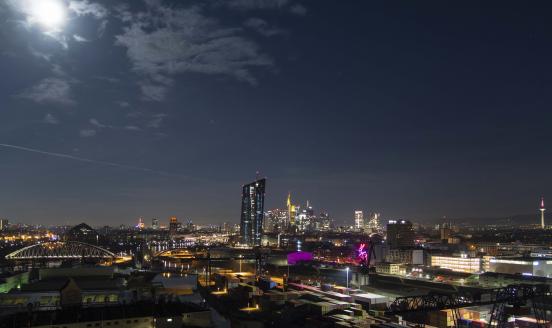Speech by Pier Carlo Padoan, Ministry of Economy and Finance, Italy
Speech from Bruegel 10th Anniversary Event, “Europe and Emerging Markets”, held in Rome on 5 May 2015.
Let me share with you a few thoughts about this event and the 10th Anniversary of Bruegel. I recall that Bruegel was a topic of discussion with Jean Pisani Ferry earlier than that; I remember that he visited the International Monetary Fund when I was serving there, and he said “I have an idea in mind, and that is an idea to establish in Europe something which under different acronyms is already acting in the US, and in Washington especially.” That is to say to develop a think tank that is at the same time looking at domestic issues, as is the case of the US, and also at global issues because, as Jean continued, “I feel that there is no such thing in Europe yet so we need one”. Certainly, he was absolutely right, and so conversation between Jean Pisany Ferry, Nicolas Veron and myself began, with the idea that such an instrument would be useful for policy making in Europe and would deserve support.
Italy from the start decided that supporting this endeavour was a good idea, and this is one of the reasons why we are here in Rome today celebrating 10 years of Bruegel. So, my first point is that I’m very proud, although this is not my merit. Italy and the Italian government contributed to Bruegel’s foundation and enjoyed Bruegel’s activity throughout this decade. Indeed I have some official date here, on 9 March 2004, Italy was one of the 11 EU member states to support and sign an initial agreement to support Bruegel, conditional on successful fundraising from the private sector, which was secured later in 2004. So this is a private-public partnership in intellectual policy making.
So here comes the next point. Everyone knows who Peter Bruegel was, the 16th century painter whose paintings you can admire in Brussels where Bruegel is located. But I later learned that Mario Monti, who was certainly one of the most influential people behind this initiative, suggested another interpretation of Bruegel. And again I have it here in my notes. “Bruegel stands for Brussels European and Global Economic Laboratory”, which is brilliant. Usually the way you come out with these things is that you start with the acronym and then you decide what it means; which reminds me of how economists are used to working. They have an idea in mind and then they think until they find a model that explains why they’re right. Being an economist myself, I know how it works.
Bruegel has very rapidly established itself as a leading intellectual player and intellectual leader in the European policy debate
But this is a good intellectual exercise. So Italy’s contribution started then and it has been strengthening over time, both in terms of support through resources but also, let me say, I’m particularly proud that it has gone through and still is going through an active participation of Italian scholars and workers, hardworking workers, in Bruegel from Italy. And this is again a very welcome sign. Since then Bruegel has very rapidly established itself as a leading intellectual player and intellectual leader in the European policy debate, because it understood the appropriate cocktail of ingredients of looking at the evolving monetary union and the place it was playing in the global economy.
In 2005, we all know that there was no financial crisis and hardly anybody thought there could be such a big one, certainly I wasn’t thinking about it. Let me share with you a thought about this - when I was asked “where do you think the next financial crisis will come from?” my answer was “China”. And what I had in mind is a problem that seems to be emerging now, with the fragility of the Chinese financial system but in this way – so I was really misunderstanding the situation. Although of course the growing US trade deficit was also a source of concern. The traditional answer at that time was “don’t worry, markets will take care of the deficit financing” and that was what we got with the US deficit floating around 6% of GDP, which is a huge number in terms of raw figures.
So this was the environment and in that environment Bruegel initially established itself very quickly in a time where there were many policy challenges but none as challenging as the one we would be beginning to see only 2 years later in 2007, when the subprime crisis sparked off the global financial crisis.
Bruegel provides timely evidence based on policy recommendations, answering key policy questions
How is it that Bruegel has managed to establish itself as a key element? Well, it’s easy to describe it because - again my interpretation - it was able and it is able to provide timely evidence based on policy recommendations, answering key policy questions and linking Government, communities, research communities, business and civil society. So it’s very easy to describe this once you know it works. In practice it’s much more difficult to implement it because after all, if you look around the spectrum of think tanks and policy centres that debate on policy issues, not all of them are as successful. So there must be something different that explains Bruegel success.
One possible explanation is exactly the novelty or the formula: the fact that Bruegel was and is a European institution, which is also deeply global. The interaction between these two complexities to me, and of course the ability to master and manage them, is a key recipe and it’s not easy to replicate.
So with the benefit of hindsight, but again economists are very good at that, this is the formula to be useful, not only to the policy debate but useful to policy makers. And I can testify that in my current job, which is being a policy maker, Bruegel’s contribution to the work that the ECOFIN has been doing has been simply exceptional. Exceptional exactly because it did the magic of attracting the interest of Finance Ministers, who usually are people who think that nothing is really interesting but the budget. I think there’s something else that is also different but of course the budget is a problem. And Bruegel was able to spark the attention of the EU and EU area finance ministers on a wide range of topics.
Let me recall that Bruegel managed to organise and prepare for the Italian semester dealing with an unemployment mechanism in Europe. I call it an unemployment mechanism because it’s still floating in the air but certainly it is something, and again this is my personal thought, that should definitely be in the next policy agenda. Hopefully we are getting out of the mess of the financial crisis and so for Europe the time has come to think of the long-term agenda and look at practical ways to produce more integration, and more mutualisation. I think that a must will be how to deal with unemployment, which is at the same time extremely high and extremely different for its explanations, or mix of explanations, be they are cyclical, be they are structural in so many different ways.
So this is a big challenge: how do you build a truly European institution, not because you name it European, but because it works on a European basis, drawing on such a different set of national experiences. This is a challenge for you, I’m sure you will come up with very useful responses.
So let me come today very quickly to the issue that you will be discussing in the panel. I see that it’s Europe and the Emerging Markets but then, in my notes I had it written that it’s specifically on low interest rates. This is again an example of a very timely topic. I’ve just returned this morning from Azerbaijan where the Asian Development Bank was convening in its annual meetings. And guess what? One of the topics that was in the mind of the governors of the bank was exactly both low interest rates and energy prices and where you can easily expect the audience being split between consumers and producers, one smiling, the other crying for opposite reasons.
But having said that, I think this is a very timely topic also for Europe. Let me put it in perspective. I see today a policy mix in Europe, which you may summarise in the following list of components: Quantitative Easing (QE), with implications for exchange rates and interest rates. Structural reforms or I would say incentives, more incentives for structural reforms than before because also of the new communication around flexibility that the Commission put out recently. Investment, of course the Juncker plan and what comes with it. And an old fashioned yet very valuable instrument named the Single Market.
Now, the question which I leave to you, if you wish to take it up, is: is this policy mix enough? Not simply to float to the upswing of this weak cycle, or do we need something more to transform this weak cycle into a more robust growth? And to that effect, is the policy mix, is the monetary policy stance appropriate, do we need to do more? And in particular one question which has been very much, and you know that very well, in the policy debates both public and less public in Europe. Is there a contradiction between QE and policy rates that are so low and the need for many, if not all, European countries to start and develop structural reforms? So is there a contradiction or as I like to say, there is a complementarity? My favourite answer to that argument is the Italian evidence which shows declining interest rates and increasing structural reform records, so it goes the other way, maybe. But that’s a purist relationship, possibly.
The second aspect which is correlated is: to what extent a given structural reform agenda, once it is implemented, is facilitated by monetary policy? Another common wisdom statement is that monetary policy at best can improve the cycle but it cannot raise permanently growth rates. If you took it in isolation, yes, but it depends how you mix it with other policy instruments. And maybe there is a policy mix which in a common monetary policy is part of, that ultimately raises long term growth, potential output and not just a cycle.
So, sorry for this long list of questions, I have the luxury of asking questions and not being able – not in this place - to provide answers. But again, let me welcome Guntram Wolff and Bruegel here in Rome, and of course we will have many other opportunities to interact and many more questions would be offered to you, and you will provide us with many more brilliant topics.
The recent Policy Brief produced for the Latvian presidency is a very important, very practical and very insightful report on capital markets.
Just to conclude with an advertisement to your work, the recent Policy Brief produced for the Latvian presidency is a very important, very practical and very insightful report on capital markets. Let’s hope that we have the tranquillity and the time to look at it seriously, and that we are not overcome by negative shocks coming from outside.
Thank you very much.
Read more:

